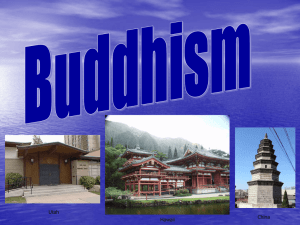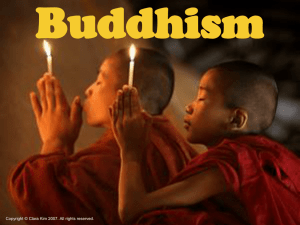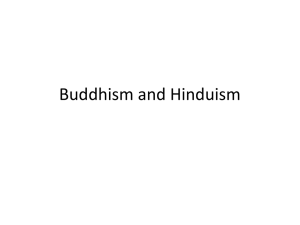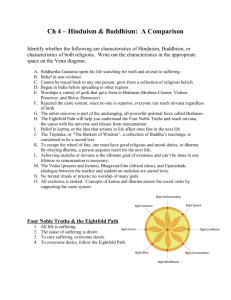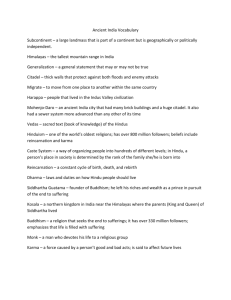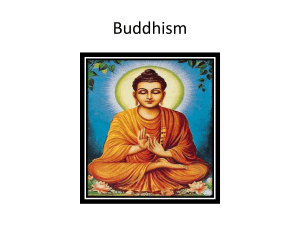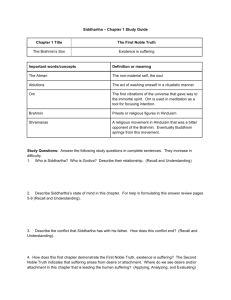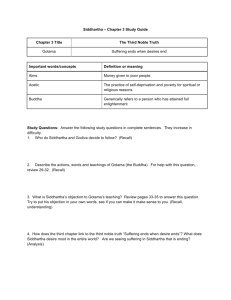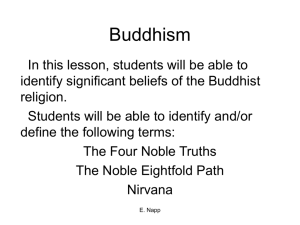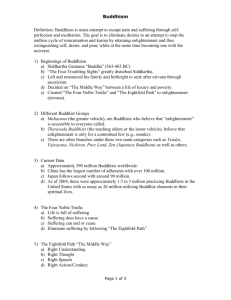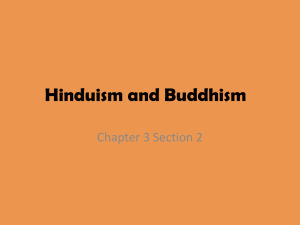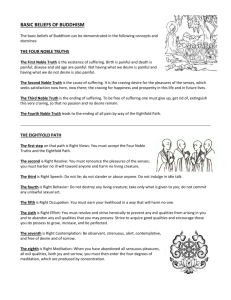File - Global History I
advertisement
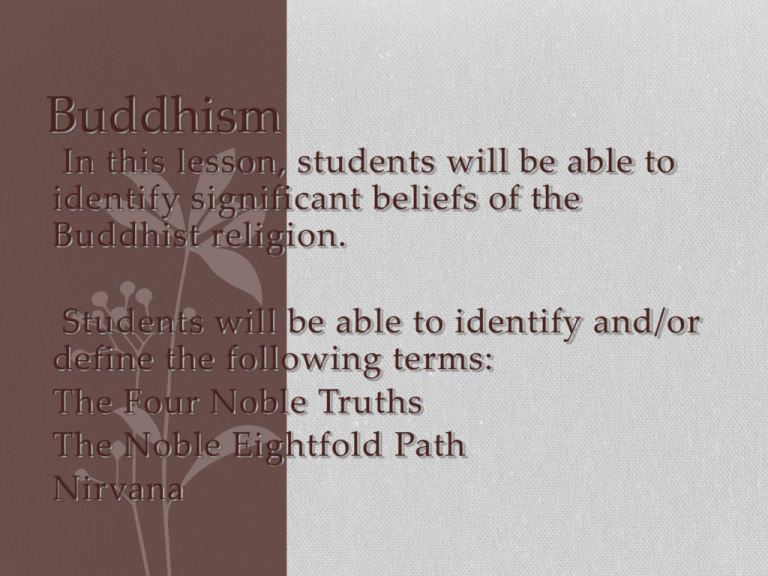
Buddhism In this lesson, students will be able to identify significant beliefs of the Buddhist religion. Students will be able to identify and/or define the following terms: The Four Noble Truths The Noble Eightfold Path Nirvana DO NOW: •In complete silence, answer one of the following questions in your notebook: •Why do religions form? •What advice would you give to someone who wanted to be successful in life? Provide examples. Key Point #1: Origins • Siddhartha Gautama was an Indian prince who longed to see the world beyond the palace that he lived in. • Upon leaving the palace, Siddhartha discovered the existence of suffering. He discovered that we are born only to age and die. Siddhartha wanted to discover the cessation (end) of suffering. He sat under the Bodhi tree and meditated until he became enlightened. When Siddhartha achieved enlightenment, he became the Buddha or the Enlightened One. Key Point #2: The Four Noble Truths •Siddhartha’s answer to the cause and cessation of suffering can be found in his Four Noble Truths. The Four Noble Truths Life is suffering. Desire and attachment cause suffering. Suffering can end. Follow the Noble Eightfold Path Turn and Talk: ALL LIFE IS SUFFERING. DO YOU AGREE OR DISAGREE? WHY? Life is suffering but suffering can end. Key Point #3: The Noble Eightfold Path •The Buddha encouraged his followers to follow the middle path or to avoid extremes such as eating too much or eating too little. •The Eightfold Path are eight actions designed to help followers achieve enlightenment. •They are right view, right intention, right speech, right action, right livelihood, right effort, right mindfulness, right concentration. The Noble Eightfold Path Key Point #4: Nirvana •Nirvana is the end of suffering. •By achieving nirvana, a person escapes samsara or the cycle of reincarnation. •Siddhartha achieved nirvana when he became enlightened. Nirvana is the end of suffering. Questions for Reflection: • Who was Siddhartha Gautama? • Why did Siddhartha leave his palace? • Explain the Four Noble Truths and the Noble Eightfold Path. • What is samsara? • Define nirvana. • How does Buddhism differ from Hinduism? How Can Buddhism be considered a reaction to the beliefs of Hinduism?
